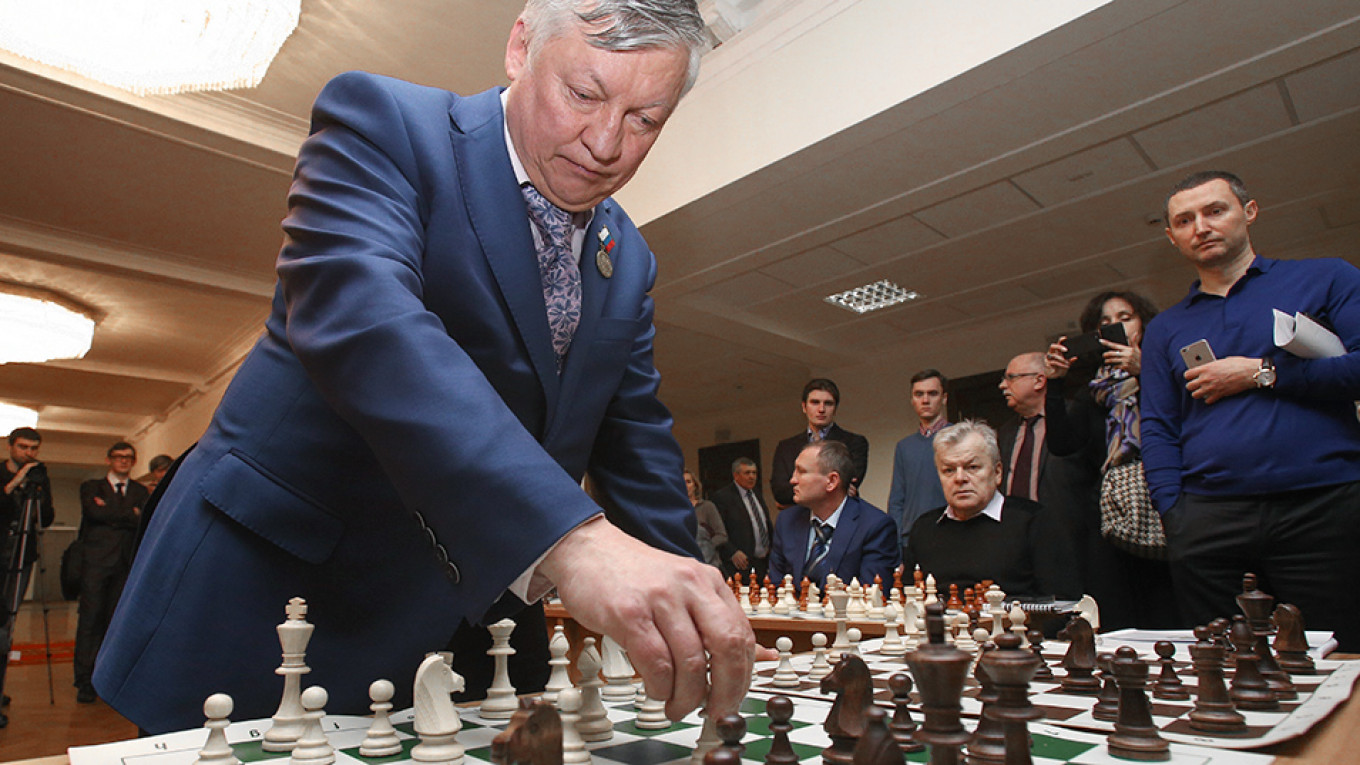
Russian chess grandmaster Anatoly Karpov has been unable for several months to obtain a visa to travel to the United States, his friend, the owner of a chess academy in New York who invited him to teach a summer camp there, said on Wednesday.
Karpov, 68, considered one of the greatest chess players of the modern era, has visited the United States regularly since 1972. He first applied for the non-immigrant visa in March and is still waiting for it to be approved, said Maxim Dlugy of the Chess Max Academy.
“He was suddenly called in for an interview in the Moscow embassy and asked, “Are you going to talk to U.S. Senators and Congressmen? We’ll have to check that out’,” Dlugy said.
Staff members of U.S. Representative Carolyn Maloney and U.S. Senator Chuck Schumer both contacted the U.S. Embassy in Moscow on Karpov’s behalf and were told that his application was still being processed.
“This processing cannot be waived or expedited as it is crucial for the final decision regarding the issuance of a visa,” the embassy’s public liaison unit said in a July 2 letter to Maloney’s office.
“Mr. Karpov will be notified as soon as this process is complete. Be assured that as of today, no further documents or actions are needed from Mr. Karpov,” the embassy said.
A spokesman for the U.S. Department of State, Noel Clay, said in an email on Wednesday that he could not answer questions about the status of Karpov’s visa application because such records were kept confidential under federal law.
Karpov, who was the official world champion from 1975 to 1985 when he was defeated by Garry Kasparov, was believed to be in Moscow on Wednesday evening but could not be reached for comment by Reuters.
Dlugy said Karpov has been helping train top young U.S. chess players at the Chess Max Academy for the past two years and has had no difficulty securing a visa during his long career.
“I sincerely hope for the betterment of relations between Russia and the United States that a gracious welcome is extended rather than the cold shoulder of delay,” Dlugy said in a letter to Schumer.
“When a such a legendary personality extends his desire to improve the level of America’s most talented chess players, it is a sign that some goodwill is possible between us,” he said.
